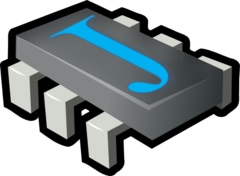Hazelcast Releases JCache Implementation at Oracle Open World
September 29, 2014 (PRLEAP.COM) Technology News
San Francisco, CA - September 29, 2014 - On the opening day of JavaOne and Oracle Open World, Hazelcast, the leading open source In-Memory Data Grid provider is announcing the release of Hazelcast 3.3.1 JCache, the JCache compatible version of Hazelcast. By using JCache, developers will be able to deploy standards-based extremely high-performance and scalable java applications. Hazelcast and JCache - Hazelcast is now drop-in pin compatible with both Oracle Coherence, the leading In-Memory Data Grid and Ehcache, the most widely deployed in-process cache. JCache is the Java standard for supercomputer-class In-Memory Computing. It's is already getting wide attention to do its inclusion in the Spring Framework 4.1, the most popular Enterprise Java framework. Java Enterprise Edition support for JCache is coming.
The Hazelcast JCache implementation in 3.3.1 passes all of the 463 tests in the JSR 107 TCK (Testing and Compatibility Kit) and thus is officially sanctioned as a working compatible implementation of JCache. Hazelcast joins Oracle Coherence and Ehcache as the only JCache implementations to date. Hazelcast is in a unique position to provide an excellent JCache implementation, as Hazelcast CEO Greg Luck wrote the original Ehcache and is the JCache specification co-lead alongside Brian Oliver, Architect of Oracle Coherence.
"In-Memory Computing used to be the realm of HPC Supercomputing gurus." said Greg Luck, CEO of Hazelcast, Co-Author of JCache specification and creator of Ehcache. "With JCache, it is now standardized and ready for mainstream adoption."
Benefits of JCache
JCache will accelerate the adoption of In-Memory Computing. Right now Oracle is promoting the 12c In-Memory Database and Exadata machines. Having a standard as well as open source alternative to Oracle 12c In-Memory and Exadata will accelerate adoption by the market. The standard will also reduce vendor lock in for both proprietary In-Memory Data Grids such as Oracle Coherence and Pivotal Gemfire, but also for proprietary In-Memory Computing solutions.
Caching is often considered an afterthought by developers, now with the JCache API developers can build caches as a native part of their application data handling. This will prevent performance outages and enable fast scalability and microsecond in memory performance to all Java applications who support JCache. It will also increase the available talent pool for developers who can deliver In-Memory performance. Lastly it will enable organizations to abandon proprietary cache abstraction layers and adopt the industry standard.
How JCache Will Change Computing
JCache, co-authored by Hazelcast CEO Greg Luck and Oracle Coherence architect Brian Oliver is a Java standard approved by the Java Community Process (JCP). It will accelerate mainstream adoption of In-Memory Computing by giving all Java developers an easy-to-use and standard way to access memory from within Java. Enterprises will greatly benefit from the increased speed and scalability of applications written to take advantage of JCache, and will be able to change providers without having to rewrite their applications or maintain a proprietary bespoke cache abstraction layer.
Much like the advent of JDBC (Java Database Connectivity), the emergence of a JCache standard will shift the perception of java developers from caching as an afterthought to caching as a core part of every Java application. Since Java is still the dominant programming language for Enterprise computing, this will popularize this style of programming across many organizations. Traditionally, caching has been an afterthought as performance starts to lag. Today, this is an unacceptable approach as we are in the era of IoT (Internet of Things), Mobile, Social, Viral and Multichannel distribution, where user activity can spike unexpectedly and the "cache later" mentality can result in expensive system outages.
JCache offers supercomputer-like distributed memory and symmetric multiprocessing to all Java developers as a built-in part of Java. For the first time, this kind of performance is available as a Java standard and implementations are available in open source.
Hazelcast at JavaOne
At JavaOne, Hazelcast is readying four JCache related talks:
"Using the New JCache" with Hazelcast CEO Greg Luck and Oracle Architect Brian Oliver Weds 4:30PM
"Squeezing Performance out of In-Memory Data Grids" with Co-Founder & VP Technical Operations Fuad Malikov, Tues 9PM
"Data Partitioning and Distributed Computing with Hazelcast"with Senior Solutions Architect Chris Engelbert , Tues 4PM
"JCACHE Hackergarten" with Hazelcast team Monday 10:30AM
About Hazelcast
Hazelcast develops, distributes and supports the leading open source In-Memory Data Grid (IMDG) and up-and-coming NoSQL solution. The product, also called Hazelcast, is a free open source download under the Apache license that any developer can include in minutes to enable them to build elegantly simple mission-critical, transactional, and terascale In-Memory Computing applications. The company provides commercially licensed Hazelcast Enterprise, Management Center and professional open source training, development support and deployment support. The company is privately held and headquartered in Palo Alto, California.
Keywords: Hazelcast, In-memory data grid, Document Database, Object Database, In-memory Database, computing, big data, NoSQL, grid computing, Apache License, Open Source, Oracle Coherence, Pivotal Gemfire, Software AG Terracotta
References
http://hazelcast.com/
Venturebeat: Hazelcast adds $11M to grow its business based on an open-source in-memory data grid
InfoQ: Java In-Memory Data Grid Hazelcast 3.0 Supports Continuous Queries and Entry Processing
VentureBeat: Turkish engineers get $2.5M for Hazelcast, an open source in-memory data grid for Java
PRLeap: Hazelcast Hires Silicon Valley Management Team Members for Next Phase of Growth
Blog: Hazelcast vs Cassandra Benchmark (10x faster):




